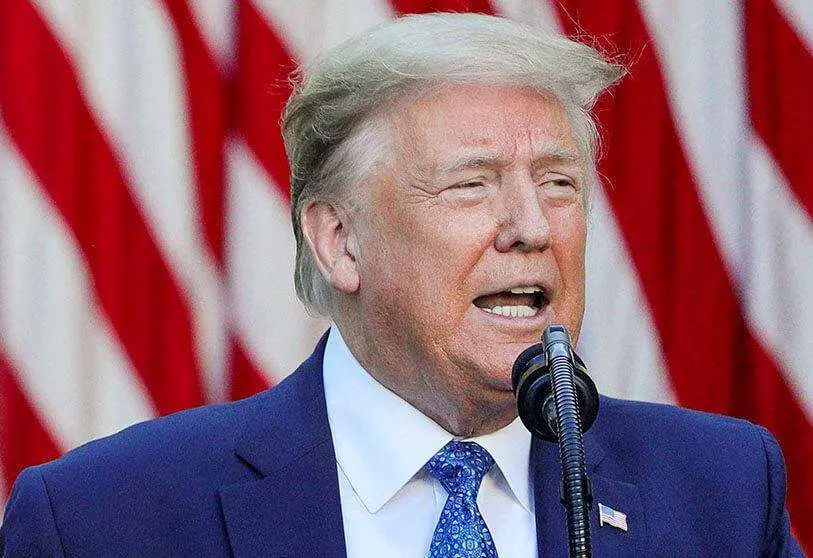Under the shadow of Trump

The FBI will have to work hard to present sufficiently conclusive evidence for former President Donald Trump to be ruled out of American political life. Either that, or the Republican Party, which he has subdued to this day, will once again become one of the strongest guarantors of exemplary American democracy.
The latest primary elections, prior to next November's legislative elections, have led to the defeat of the most visible candidate, Liz Cheney, daughter of former Vice-President Dick Cheney, who was considered one of the Republicans' greatest potential assets. Cheney was beaten in the state of Wyoming by another woman, Harriet Hageman, who in the 2016 campaign was one of the most active detractors of Trump, whom she repeatedly called a "racist and xenophobe". But no sooner had Joe Biden taken the White House last year than Hageman called him "the best president of my time", embracing in the process the conspiracy theory that it is not known what hidden forces had "stolen" the Republican's re-election.
If it were not for the abundance of images available to the public of the assault on the Capitol in Washington, it is likely that Trump and his powerful political machine could have easily fabricated an argument that it was all a spontaneous reaction of the people or that it simply did not happen. Even so, to this day, different studies suggest that the robbery theory is still largely accepted by the Republican electorate.
As we are seeing on a daily basis, Donald Trump's every move seems to be aimed at one great and single goal: to regain the White House. The Republican Party, the party of Abraham Lincoln or Ronald Reagan, which initially considered Trump as someone with little or no chance of winning a presidential election, has turned into an institution almost entirely in his hands. The few congressmen in the party who resisted accepting the thesis of electoral theft have been disappearing from the political scene. Ten were those who voted in favour of the post-election "impeachment", that is, the impeachment that would mark Trump as a criminal, which would rule him out forever to rule the country again. Of these ten, eight have been eliminated in these primaries, either because they have chosen not to run, after examining overwhelmingly unfavourable polls; others because they have not resisted pressure and personal and family threats, and others, as in the case of Liz Cheney, because they have confirmed at the polls the defeat that the polls predicted for them. The only two who survive are those who have won because the primaries were open, which is an exception in the US.
The police and judicial siege of Trump and his entourage, in which emblematic names such as Rudolph Giuliani have seen their good reputation collapse with a crash, will have to prove that the former president violated the law, which expressly prohibits taking classified documentation home. The twenty or so boxes that the FBI took from his current residence at Mar-a-Lago, in the state of Florida, will be the key to the political end of this descendant of the European migratory wave.
Or not, because in the meantime Trump has managed to sharpen the polarisation of the country. It was not he who provoked it, certainly, but he has been and is the one leading the greatest antagonistic division in the country since the days of the racial struggle for civil rights. The successive economic and social crises in the United States are leaving behind many dense layers of the population, for whom the once "American dream" has become dramatically unattainable. It is, therefore, the best breeding ground for this polarisation, and for the outbreak of civil war that is already being talked about in more than a few circles and institutions in the country.
Beyond the conflicting positions in the political arena, a fracture in the constitutional loyalty of one of the two major American parties would be a tragedy for the whole world. After all, and despite contradictions and some isolated, less than exemplary behaviour, American democracy continues to be an example, not yet surpassed, that the law is equal for all, and is above the totalitarian impulses that, unfortunately, are taking hold in other parts of the world. It would therefore be a terrible tragedy if those around the world who aspire to a society made up of free and equal people were to lose the great benchmark that is still the United States of America.

